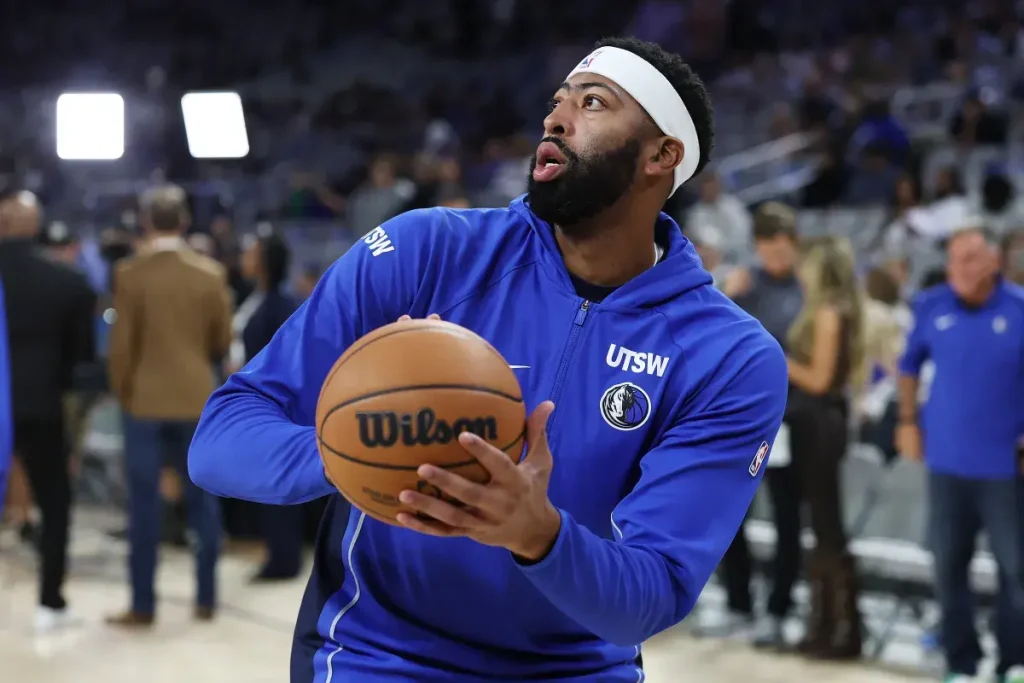The Pistons’ Rise: Balancing Success with Future Potential
Detroit is experiencing a basketball renaissance as the Pistons surge to the top of the Eastern Conference, riding an impressive eight-game winning streak. This unexpected dominance has positioned them 2.5 games ahead of the Miami Heat, transforming a team that was merely considered playoff contenders last season into legitimate conference leaders. The Cade Cunningham-led squad has quickly evolved from a rebuilding project into a formidable NBA force, raising intriguing questions about their next developmental steps. As their success continues to build, some analysts have begun speculating whether the team should consider accelerating their championship timeline through significant trades that could elevate them to elite status.
The Ringer recently proposed a bold trade scenario that would dramatically reshape the Pistons’ roster, suggesting Detroit could send Jaden Ivey, Tobias Harris, Ron Holland, and Isaiah Stewart to Dallas in exchange for Anthony Davis and Klay Thompson. On paper, this blockbuster move holds certain appeal—pairing Davis with Cunningham, Ausar Thompson, and Jalen Duren could create an imposing lineup with elite defensive capabilities and diversified offensive options. The theoretical partnership would allow Davis to play power forward, his preferred position, while not demanding he shoulder the entire team’s burden. With Detroit’s combination of young talent, expiring contracts, and draft assets, they certainly possess the resources to pursue such an ambitious deal if desired.
However, pursuing this path would represent a significant philosophical shift for the Pistons’ front office, which has consistently emphasized patient development over accelerated timelines. Throughout recent seasons, Detroit’s leadership has repeatedly signaled their commitment to organic growth and development of their young core, resisting the temptation to sacrifice future potential for immediate gains. This disciplined approach has begun bearing fruit with their current success, raising legitimate questions about the wisdom of dramatically altering course midstream. The organization appears to understand that sustainable success in the modern NBA often requires allowing homegrown talent to mature collectively rather than constantly reshuffling the deck.
The proposed trade package carries substantial risk beyond just organizational philosophy. Anthony Davis, while undeniably talented, brings with him a concerning injury history that continues to plague him in Dallas, where he’s currently sidelined with calf issues and faces an uncertain return timeline. Klay Thompson’s inclusion doesn’t necessarily offset these concerns, as the former Warriors star has shown significant regression despite maintaining relatively good health. This season has been particularly troubling for Thompson, with his scoring average dropping to just 7.4 points per game while his three-point accuracy has plummeted to 26 percent—a far cry from the elite shooter who helped Golden State secure multiple championships.
For Detroit, the trade would also mean parting with significant young talent that has contributed to their current success. While Harris represents an expiring veteran contract, Ivey remains under team control through 2025-26 with restricted free agency giving Detroit matching rights to retain him. Holland and Stewart further represent valuable developmental pieces that align with the team’s youth movement. By trading away these players for veterans with questionable durability and declining production, the Pistons would be gambling their promising future on immediate but uncertain returns—a substantial risk for an organization that has carefully built its current core through strategic drafting and development.
Given their unexpected rise to Eastern Conference prominence and the clear chemistry developing among their current roster, the Pistons appear unlikely to deviate from the patient approach that has delivered their current success. Their adherence to building organically rather than chasing quick fixes has positioned them favorably in both the present competitive landscape and for future seasons. While blockbuster trades will always generate headlines and speculation, Detroit’s front office seems committed to a more measured path forward—one that balances competitive ambition with sustainable growth. As their winning streak continues to build and their position atop the conference solidifies, the Pistons are demonstrating that sometimes the best move is allowing your existing pieces to develop rather than constantly reshuffling the deck.


